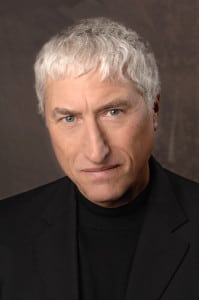
Many PR pros assume that they collaborate with journalists. For some journalists, however, that’s a false assumption. Howard Arenstein, the bureau manager for CBS Radio News in Washington, D.C., is among that group. “I don’t consider myself to be working with the PR industry,” he said.
Arenstein is a hybrid, though. While you are apt to hear him reporting a story from Washington during the hourly updates CBS provides to local affiliates, the majority of his job consists of feeding producers and reporters, who do the reporting. “I coordinate coverage and assign stories, working with our radio correspondents and TV correspondents, too...I am a filter.”
His biggest peeve with PR? “When people send me an email and then call and ask whether or not I received the email,” he says. “I rarely have time to talk to them. When I do, I usually tell them, ‘Yes, I received your email.’”
THE VOLUME OF EMAIL
Of course, the subject of the pitch is critical. “Last week I received a phone call from someone representing a large retailer that was making a charitable donation. I asked the person to send me the details via email,” Arenstein says. “They did; and I sent the story to my boss in NY, who assigned a reporter to it and it got on the air.”
He added: “But, just getting a phone call out of the blue, asking me whether or not I am aware that so-and-so is holding a news conference, or calling me to ask whether I’ve received an email, that’s annoying.”
Arenstein says email is his preferred method of contact. “The problem is I get hundreds every day. But I read them. It’s rare when I miss one...but I rarely have time to answer them. I can see why people would be worried that I haven’t seen them.”
ON AND OFF TARGET
Targeting is a difficulty. Since Arenstein’s reports are heard on a local D.C. news station, WTOP, PR people mistakenly assume he is a local reporter and pitch him accordingly.
In addition, “I often get calls from people who think their story is very important and I don’t think it’s important at all. And that’s one reason why I have to go through hundreds of emails everyday.”
With digital technology and his years of experience in Washington, it makes sense that targeting would have improved over the years.
“Yes, I would think so, but it’s not gotten better. What happens is that your name gets listed in a directory.
“And when people call from the directory to ask if my contact information is correct, I tell them ‘Take me out of that directory. I don’t want to be in that directory.’ “People who need to contact me, know how to get in touch with me.
He adds: “But I am always getting called by people with stories that have no chance of making it on CBS Radio News...we probably get more requests today than ever because of email, which makes filtering far more difficult...The percentage of stories that get on the air is very, very small.”
DO YOUR HOMEWORK
Still, with all that, Arenstein doesn’t feel “overly targeted” in most cases. “I know there are [PR] people who are sending releases to a lot of reporters and editors, probably too many,” he says. “But most people who approach me come with legitimate stories.”
It’s better when a PR person has done homework, and knows the kind of story that could legitimately get on CBS, he says.
Yet, “There are so many people who are trying to get publicity for themselves and their cause. It’s difficult for me as an editor to deal with all of them.”
Arenstein’s overriding advice: “I will at least read the subject line of every email that comes to me. So I suggest sending an email; if it looks like something that might be of interest, then I will respond or pass it along to the right editor,” he says. “But keep it short and sweet. Don’t go into detail over some issue that I am not necessarily interested in.”
CONTACT:
Howard Arenstein, [email protected]
This article originally appeared in the March 9, 2015 issue of PR News. Read more subscriber-only content by becoming a PR News subscriber today.
